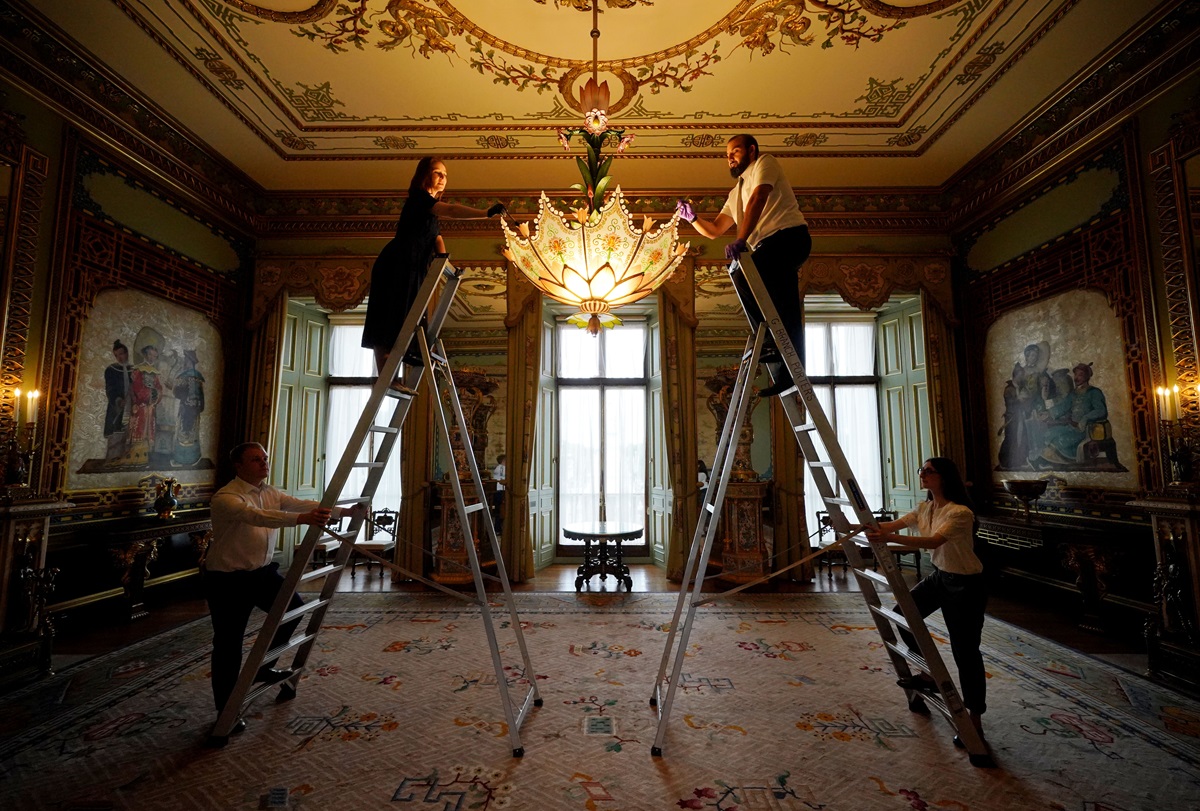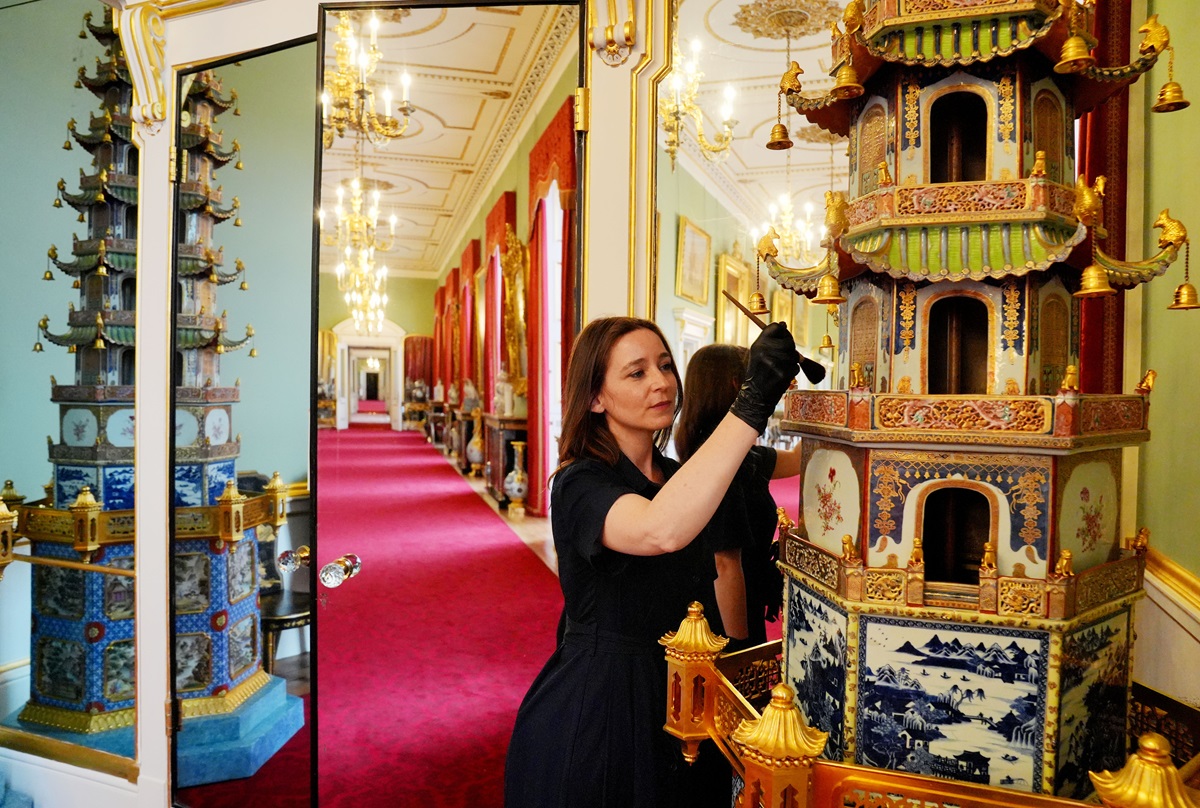Treasures from George IV’s Royal Pavilion now housed in the room behind Buckingham Palace’s famous balcony will open to the public next week.
The King was instrumental in allowing visitors into the royal residence’s east wing for the first time and almost 6,000 tickets were sold out within hours of going on sale in April.
Caroline de Guitaut, Surveyor of the King’s Works of Art, said: “It was Prince Albert’s idea to have a balcony at Buckingham Palace, because he saw it as a way of enabling the royal family to connect with the people, and of course that’s exactly how, in a sense, it continues to be used on important occasions.”
She added: “But it began to be used very early on in Queen Victoria’s reign, from 1851 waving off the troops to the Crimean War and welcoming them back on return.”

The palace’s east wing was built between 1847-49 to accommodate Queen Victoria’s growing family, and the development enclosed the former open horse-shoe shaped royal residence.
George IV’s opulent oriental-style seaside palace, the Royal Pavilion in Brighton, was sold to finance the building work and its contents, some of the finest ceramics and furniture in the Royal Collection, were moved to the east wing and inspired the Chinese-themed decor of its principal rooms.
They were carried from Brighton in 143 shipments on artillery carts, and although some items were loaned back to the pavilion, major items, like 42 fireplaces, were incorporated into Buckingham Palace along with tables, chairs, clocks and vases.

Guided tours of the east wing, which also include the palace’s state rooms, will take visitors along much of the 240ft-long principal corridor, and include the yellow drawing room and centre room behind the balcony.
The yellow drawing room features an oriental-style fireplace from George’s seaside pleasure palace, an elaborate gilded curtain rail and even some of the pavilion’s wallpaper that was discovered in storage by Queen Mary and hung at her request.
Victoria and her consort furnished the corridor with chairs, side tables, large pagodas and Chinese porcelain, including an incense burner in the shape of a Buddha.

The Surveyor of the King’s Works of Art said about the space that runs the length of the east wing: “Really it’s essentially a blank canvas, and I think that’s probably what really appealed to Queen Victoria and Prince Albert.
“Allowing them really to put their stamp on the furnishing and to incorporate, somewhat surprisingly I think for many people, these works that speak very loudly of George IV’s more exuberant and exotic tastes.”

Highlights in the centre room include a newly restored glass chandelier, shaped to resemble a lotus flower, and two Chinese 18th-century imperial silk wall hangings, presented to Victoria by Guangxu, Emperor of China, to mark her Diamond Jubilee in 1897.
The public will not be able to step onto the balcony although they will have views down The Mall.
Visitors with a standard ticket for the place’s state rooms will tour the 19 rooms used by the royal family for official entertaining. In the ballroom, they can view artist Jonathan Yeo’s new portrait of the King, with its striking red background.










Queen Victoria’s looting of the Pavilion was of course a scandal. And the family’s reputation was not improved by the subsequent light fingered exploits of her first cousin once removed, Queen Mary.
On a visit to the Pavilion in the late 90s Prince Charles commented on the beautiful, gilded, skilfully crafted reproduction clock in the Music Room. A member of the reception party remarked that he could always return the original (pictured here) from Buckingham Palace to its rightful location. And the Pavilion would happily donate the reproduction in return.
The heir to the throne made no comment.
Looted?
Property owner removes their possessions prior to sale is hardly looting !
Oxford English Dictionary:
To loot – verb, transitive, ‘To plunder, sack (a city, building)’
OK a bit of a stretch – but not much of one.